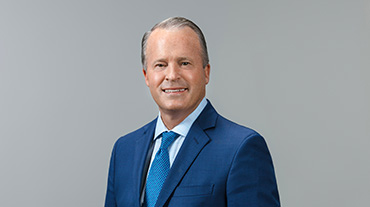Churchill Downs Incorporated Pairs COVID-19 Relief Giving with Virtual Derby
Community and corporate donations benefit Direct Relief, Team Kentucky and R.E.I.N. Fund
Louisville, KY (June 1, 2020) – On what would have been the running of the 146th Kentucky Derby on May 2, 2020, Churchill Downs offered fans a virtual alternative that also included a philanthropic component for COVID-19 relief efforts.
“The Kentucky Derby: Triple Crown Showdown” was a virtually simulated horse race, pitting all 13 Triple Crown winners in history against one another. To create the visuals for the event, Churchill Downs engaged Inspired Entertainment, an Ireland-based company that has produced thousands of CGI animations of sporting events for various entertainment and gaming purposes. Inspired worked with Churchill Downs officials as well as other industry racing experts to create the odds and probabilities that dictated the chances of the race, which eventually resulted in heavy favorite Secretariat crossing the Finish Line first.
In addition to the excitement of the first-ever virtual Derby, Churchill Downs felt a responsibility to acknowledge why the 146th Kentucky Derby had been delayed to September 2020 by contributing in a meaningful way to the public health crises that was affecting Derby fans globally. This was accomplished by challenging fans to interact with the virtual Derby by placing a “bet” on their favorite Triple Crown Champion to win by way of a donation to COVID-19 relief charities. Participants who selected the correct winner online were entered for a chance to win the ultimate Kentucky Derby VIP experience.
The #KYDerbyAtHome charitable initiative resulted in a $100,000 donation to Direct Relief and a $100,000 donation to Team Kentucky Fund while also jumpstarting Churchill Downs Foundation’s newly formed Relief for Equine Industry Needs (R.E.I.N.) Fund. The overall effort was part of Churchill Downs’s ongoing commitment to offsetting the hardships faced by the pandemic and assisting those in the community and the industry who are significantly impacted by COVID-19.
Since its inception, Direct Relief has provided aid in response to emergencies and to refugee populations. Beginning with postwar refugee assistance in Eastern Europe, Direct Relief has consistently responded with targeted medical aid following major emergencies. Today, Direct Relief provides appropriate and specifically requested medical resources to community-based institutions and organizations throughout the world and across the United States. Just as in 1948, Direct Relief’s humanitarian assistance is provided respectfully, in partnership with local groups, and without regard to ethnicity, politics, religion, gender or ability to pay. The virtual Derby donation was earmarked for Direct Relief’s COVID-19 specific efforts.
In March 2020, Kentucky Governor Andy Beshear established the Team Kentucky Fund to provide help to Kentuckians experiencing an employment-related financial hardship during the COVID-19 public health emergency. A committee, led by Lieutenant Governor Jacqueline Coleman and co-chaired by five former Kentucky lieutenant governors, was formed to identify and implement strategies that will maximize the impact of the Team Kentucky Fund. Approved applicants receive vouchers of up to $1,000 per household, and vouchers may be used to help offset such expenses as rent, mortgage, food/grocery and utility costs.
The R.E.I.N. Fund, or Relief for Equine Industry Needs, was established by the Churchill Downs Incorporated Foundation in response to the growing needs in the equine industry as a result of the COVID-19 pandemic and the subsequent interruption of customary racing operations. The emergency relief fund specifically addresses the needs of backside communities by providing meals, micro-grants and financial assistance with emergency needs as well as the fulfillment of essential care for horses.
“As the first Saturday in May approached, the traditional date for the running of the Kentucky Derby, we realized that even though the actual running of the 146th Kentucky Derby would still happen later this year in September, there was a real need from our community and fans to celebrate this date that has come to feel like a holiday to many of us,” said Tonya Abeln, Vice President of Corporate Communications for Churchill Downs Incorporated and President of Churchill Downs Incorporated Foundation. “We wanted to take this opportunity, during a unique time when we were all forced to distance due to curbing the spread of COVID, and use it as a force to unite us as a country in the way that great sporting events can do. We knew the virtual Derby would give our fans at home an opportunity to safely cheer for these legendary horses. Beyond that, we wanted the first Saturday in May to stand for more than we ever imagined it could by inspiring our fans to join together for a great and worthy cause.”
About Churchill Downs Incorporated
Churchill Downs Incorporated is an industry-leading racing, online wagering and gaming entertainment company anchored by our iconic flagship event, the Kentucky Derby. We also own and operate three pari-mutual gaming entertainment venues in Kentucky: Derby City Gaming; Oak Grove Racing, Gaming, and Hotel; and Newport Racing and Gaming. Our online wagering business owns and operates TwinSpires.com, the largest and most profitable online horse racing wagering platform in the U.S., and BetAmerica, an online sports betting and iGaming platform in the U.S. We are also a leader in brick-and-mortar casino gaming with approximately 11,000 slot machines and video lottery terminals and 200 table games in eight states. Additional information about CDI can be found online at www.churchilldownsincorporated.com.
Information set forth in this news release contains various “forward-looking statements” within the meaning of the Private Securities Litigation Reform Act of 1995 (the “Act”), which provides certain “safe harbor” provisions. All forward-looking statements made in this news release are made pursuant to the Act. Forward-looking statements are typically identified by the use of terms such as “anticipate,” “believe,” “could,” “estimate,” “expect,” “intend,” “may,” “might,” “plan,” “predict,” “project,” “seek,” “should,” “will,” and similar words, although some forward-looking statements are expressed differently.
Although we believe that the expectations reflected in such forward-looking statements are reasonable, we can give no assurance that such expectations will prove to be correct. Important factors that could cause actual results to differ materially from expectations include the following: the effect of economic conditions on our consumers’ confidence and discretionary spending or our access to credit; additional or increased taxes and fees; public perceptions or lack of confidence in the integrity of our business or any deterioration in our reputation; loss of key or highly skilled personnel; restrictions in our debt facilities limiting our flexibility to operate our business; general risks related to real estate ownership, including fluctuations in market values and environmental regulations; catastrophic events and system failures disrupting our operations; online security risk, including cyber-security breaches; inability to recover under our insurance policies for damages sustained at our properties in the event of inclement weather and casualty events; increases in insurance costs and inability to obtain similar insurance coverage in the future; inability to identify and complete acquisition, expansion or divestiture projects, on time, on budget or as planned; difficulty in integrating recent or future acquisitions into our operations; costs and uncertainties relating to the development of new venues and expansion of existing facilities; risks associated with equity investments, strategic alliances and other third-party agreements; inability to respond to rapid technological changes in a timely manner; inadvertent infringement of the intellectual property of others; inability to protect our own intellectual property rights; payment-related risks, such as risk associated with fraudulent credit card and debit card use; compliance with the Foreign Corrupt Practices Act or applicable money-laundering regulations; risks related to pending or future legal proceedings and other actions; inability to negotiate agreements with industry constituents, including horsemen and other racetracks; work stoppages and labor issues; changes in consumer preferences with respect to Churchill Downs Racetrack and the Kentucky Derby; personal injury litigation related to injuries occurring at our racetracks; weather and other conditions affecting our ability to conduct live racing; the occurrence of extraordinary events, such as terrorist attacks and public health threats, including the ongoing impact of the novel coronavirus (COVID-19 virus); changes in the regulatory environment of our racing operations; increased competition in the horseracing business; difficulty in attracting a sufficient number of horses and trainers for full field horseraces; our inability to utilize and provide totalizator services; changes in regulatory environment of our online horseracing business; number of people wagering on live horse races; increase in competition in our online horseracing; uncertainty and changes in the legal landscape relating to our online wagering business; continued legalization of online sports betting and iGaming in the United States and our ability to predict and capitalize on any such legalization; inability to expand our sports betting operations and effectively compete; failure to manage risks associated with sports betting; failure to comply with laws requiring us to block access to certain individuals could result in penalties or impairment with respect to our mobile and online wagering products; increased competition in our casino business; changes in regulatory environment of our casino business; and concentration and evolution of slot machine manufacturing and other technology conditions that could impose additional costs; and inability to collect gaming receivables from the customers to whom we extend credit.
Press Contacts
Nick Zangari
Vice President, Treasury, Investor
Relations & Risk Management
Phone: (502) 394-1157
Email: [email protected]



